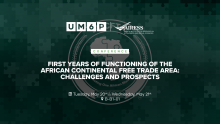The national policy outlined in the Economic Transformation Act No. 45 of 2024 (the Act or the ET Act ) identifies promoting foreign investment as a key driver in Sri Lanka’s economic transformation. It further underscores the need to attract export-oriented foreign direct investment (FDI) to support the ‘growth of non-debt creating inflows to the economy’. The policy sets forth two specific investment goals. The first is to increase the country’s net FDI inflow to at least five per cent of Gross Domestic Production by the year 2030. The second is to ensure that at least forty per cent of the country’s net FDI is in exports of goods or services by the same year. Achieving these goals requires Sri Lanka to create a conducive business environment. The preamble to the ET Act also emphasizes the need for a law that fosters an investment-friendly environment within the country. It further affirms Sri Lanka’s commitment to establish ‘a transparent, inclusive, and rules-based system that promotes fair and equitable treatment’ for both domestic and foreign investors. To that effect, the ET Act provides for a comprehensive set of investment guarantees. Yet, they mainly focus on protecting the interests of foreign investors and placing them in an advantaged position relative to domestic investors. The idea behind prioritizing investor protection is to ostensibly promote FDI which has been identified as a key driver of Sri Lanka’s economic growth in the post-economic crisis era. Thus, the ET Act manifests the structural biases inherent in international law on foreign investment while perpetuating the long-standing power disparity between foreign and domestic investors by embedding it within Sri Lanka’s domestic legal system.

